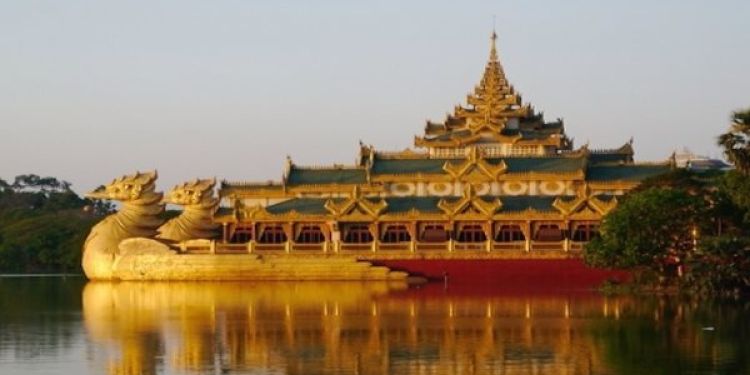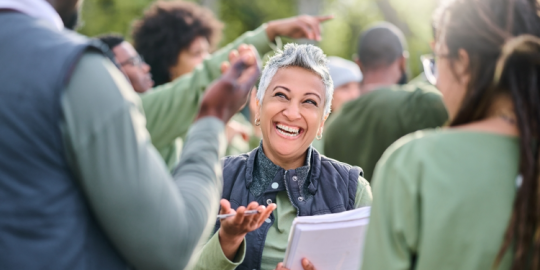Why did you decide to move to Yangon?
I was living and working as an Expat in Vanuatu before coming here, and when I learned the company I work for was opening a branch in Myanmar, I quickly applied for a position as I had always wanted to travel to Asia and hadn't had the chance to so far. I also chose Myanmar because I knew it was going to be a very dynamic market in the current and coming years, with many business and work opportunities.
How was the moving process?
A bit stressful and complex. Moving out of the South Pacific Islands can be quite difficult because there aren't so many commercial flights and big carriers serving these destinations. I was moving out of Vanuatu with a cargo of personal belongings as well as 2 pets, so the paperwork, time-frame and costs were important.
What are the formalities you had to undergo in order to be able to live and work in Myanmar?
As a French citizen, I came in with a simple Business Visa which I obtained at the Yangon airport upon my arrival. Since I had the proper documents prepared by my company before traveling, it was easy. All I needed was a company invitation letter and the copy of the company's registration. A USD 50.00 fee, some photos and a filled-in application form. The problem is the business visa only allows me to stay for 70 days, so I have to travel out of the country and back in every 70 days and redo this process. My company is currently applying for a stay-permit to avoid "visa runs", but the first-level stay permit will allow me to stay 3-months, then I have to travel out and in again, apply for a second-level stay-permit which lasts 6 months, and then exit and enter again to finally be able to apply for a 1-year stay visa.
How about work: how did you proceed to find a job in Mynamar? Any advice to share with the other members?

Since several years, I work for a French telecom multinational present in 32 countries. So I applied internally and was selected for a position in Myanmar. I already had the security of the job before coming to Myanmar. I don't think I would've considered moving here without securing a job or business opportunity first. Myanmar has just recently opened up to internationalization, so in many ways, it's the current El Dorado. Nevertheless, there are lots of administrative processes to come and work or do business in this country, and it requires the support of existing entities present in Myanmar who can guide you through the process for doing business, or already-well-established structures which will contract you for employment. Since there are so many business opportunities, it also attracts many foreign companies, and so outgoing tenders tend to select their partners carefully and it is not so easy to obtain a share of the market.
Did you face some difficulties to adapt to your host country (language, culture, do's and don'ts)?
The difficulties I faced were mostly linked to my company and job. The position and size of the project being very different for me, it took me 3 to 6 months to fully adapt. Other than that, finding a basic expat-standard quality lifestyle in Yangon, the city where I live, is difficult. Anything decent is very expensive in terms of accommodation, food, transportation, utilities and amenities.
I did notice all the cultural, language, do's and don'ts differences, but it didn't represent a major difficulty for me. Asian food is very different from western-food, so even though I try my best to like new things and adapt, finding western food is complicated and expensive. Real estate whether buying or renting is overpriced, so are vehicles, communication, dining or social occupations. There are not many options on the market yet, for all the incoming expats, and so, prices are high even if the quality and service aren't there.
What surprised you the most in Yangon?
The traffic, the driving. The infrastructure standards. The power, water and construction infra-structures in general. The different tastes in foods. How sweet, sour, spicy are used so differ-ently here to what I know.
Is it easy to meet new people in Yangon?
Clearly, there is a separation between expats and locals. Expats tend to hang around in the same locations, frequent the same social spheres whereas locals have different means and also, different ways of life. So, I'll answer yes and no to this question. It's easy to meet people. But more difficult to make friends. And even more to meet and become friends with locals.
Could you please share with us something you like about Yangon and something you don't like?

I like how people here are so kind, respectful and peaceful. And I like that Myanmar currency has no coins! I don't like the way people chew and spit betel everywhere. But it's funny how in Melanesia, people drank and spit Kava, here in south-east Asia, it is Betel which is also a mild stimulant similar to Kava.
A common belief about Myanmar which wasn't right:
That Myanmar people here are uneducated. Of course not everyone has access to a good education in this country, but in my everyday work as a Human Resources recruiter, I meet amazing and very capable Myanmar people, who work very hard, who speak very good English, who learn fast and accomplish great work.
What do you miss the most from your home country?
Haiti and France are both home countries to me. I miss the Caribbean cuisine, music and dancing, and I also miss the quality of France's infrastructures.
What does your typical day as an expat look like?
Unfortunately, way too many hours at the office. My work schedule varies from 50 to 60 hours a week. This leaves very little time for discovering and enjoying everything this city and country have to offer. Every time I get to experience a new place or drive outside of my home-office-home itinerary, I feel I really like this country and that I'm missing out on many good things. The country is big, and national transportation is not very developed. There are many places to see and I really hope to be able to dedicate more time to discovering them.
What are the most popular activities in Yangon?
Dining I guess. I joined a Latin Dance club. Some of my colleagues go swimming and some others workout at the gym. There's probably groups of people who join different types of activities, but information is not so well spread here for the moment, so difficult to say.
Have you adopted any local habit since living here?

Eating with chopsticks. Handing things over with the right hand while the other hand loosely supports the right arm as a sign of politeness. Taking off my shoes before entering houses, some offices, pagodas.
What are your favorite Myanmar's traditional food?
So far, I really enjoy the Myanmar Hot Pot. There are different South-Asian Hot Pots, but I like the Myanmar one, because the ingredients seems healthier to me, and the meal seems lighter than all others. I've only been here less than a year, and each region in Myanmar has its own cuisine, so, there's a lot of things I haven't tried yet.
You have lived in several countries: what did you learn from all your experiences abroad?
From my point of view, I think people are a bit similar everywhere, although they do things differently from one country to another. I've learned to never give up too fast on a country and that adaptation usually takes time anywhere. We often tend to see the bad side when we arrive in a new country. There are good things and bad things everywhere. I try to look for good things, because in the end, and in general, they are what we remember and miss after we leave. I also try to search for the authenticity of a country, not holding on to what I'm used to or the references I know, nor modernity; but to get to know the country and the people through their way of living and understanding. I look for and try to understand their food, their music, their culture, their beliefs, their behaviors, their art, their history and their way of living instead of urging or criticizing too quickly.
Which advice would you give to people wishing to live in Yangon?
I would tell them to not be afraid. This place is very easy-going compared to some countries I've experienced. People are nice and things can get done with enough amounts of patience and perseverance. I'd advise on working to improve personal qualities such as patience, understanding, respect, cordiality, tranquillity and submission. My advice would be to leave temper, stress and loud speaking at the airport. Another more practical advice if you're coming to live here and you hold on to a western-type of living: prepare a higher monthly budget, and accept doing some home improvements yourself as opposed to trying to find a comfortable place at a reasonable price. Lastly, if coming to live in Yangon, to prepare for some long seasons of humidity and rain, and longer seasons of dry heat.











Contact us to be featured in the Interviews section.
Participate